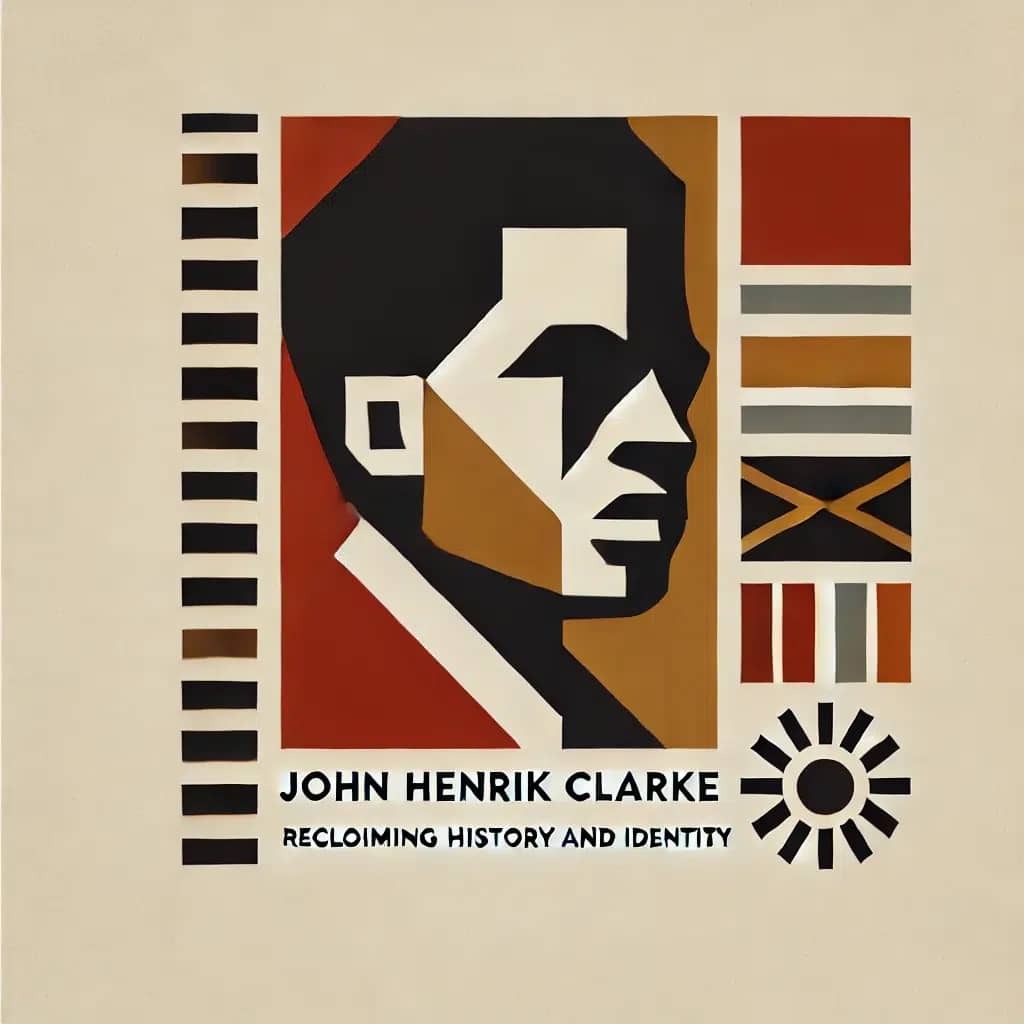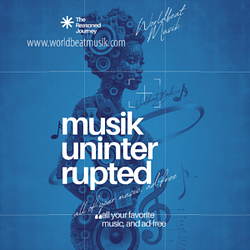There are few men who reshape the way we see ourselves. Fewer still whose words echo with such force that the reverberations challenge centuries of erasure. John Henrik Clarke was such a man, an unapologetic scholar of self-taught brilliance who dismantled the comfortable narratives of history and forced us to confront uncomfortable truths. His name may not fill textbooks today, but his spirit remains alive in every conversation about the unspoken histories of the African diaspora.
Clarke lived in a time where silence had settled over the contributions of African civilizations, over the rich tapestry of Black existence that stretched far beyond slavery and colonization. This was not the history Clarke learned in school, nor was it the history he would allow to stand unchallenged. He set out to rewrite it, not with the ink of conquest, but with the truths hidden in plain sight. The truths of Africa’s impact on the world.
Who decides what we remember? And more crucially, what is the cost of forgetting?
The Impact of Clarke’s Work on African Identity
John Henrik Clarke’s work profoundly impacted our understanding of both history and African identity. By challenging a Eurocentric narrative that had long erased or diminished Africa’s contributions, Clarke reignited pride in African heritage and identity. His insistence that Africa was the cradle of civilization gave people of African descent a sense of belonging to a history that was rich and expansive, not reduced to colonial suffering. This reframing offered empowerment, a reclamation of dignity, and inspired generations to embrace their roots unapologetically.
For those disconnected from their ancestry through the violence of slavery and colonization, Clarke’s teachings were transformative. His work laid the groundwork for modern Afrocentric thought, which emphasizes the importance of understanding the world—and one’s place in it—through an African-centered lens. Clarke’s influence resonates today, as movements for Black empowerment continue to draw from his insights on identity, self-worth, and historical justice.
Challenging Dominant Narratives and Its Consequences
In Clarke’s time, Black studies had no formal place in the academic world. Colleges didn’t consider it a discipline worth pursuing. But how does a people understand themselves if they are never taught their origins? Clarke’s answer was simple: they can’t.
Clarke took on the intellectual giants of his day, those who had woven a version of history that centered Europe as the pinnacle of civilization. He insisted on revisiting and reinterpreting historical events, figures, and cultures with Africa at the center, highlighting how African civilizations influenced global progress long before European colonization. His narrative was not about exclusion; it was about restoring balance. Clarke showed that Ancient Egypt was African, that the intellectual hubs of Timbuktu thrived during Europe’s so-called Dark Ages, and that Africans played a pivotal role in shaping world history.
The consequences of this intellectual challenge were significant. Clarke faced criticism from mainstream historians who viewed his reinterpretations as divisive. His work was often marginalized in academic circles, but the growing demand for Black studies programs in the 1960s and beyond speaks to the hunger for a more truthful understanding of history. Clarke’s work was not merely academic; it was a political and cultural statement that disrupted the comfort of dominant narratives and inspired movements for racial justice and academic reform.
The Afrocentric Lens and the Future
Understanding history through an Afrocentric lens changes everything. It reshapes our perception of the past, and more importantly, it redefines the present and the future. Afrocentrism teaches that African culture and history are not secondary to Western civilization—they are foundational to it. This worldview empowers African descendants to claim their rightful place in the global narrative, to see themselves not as victims but as contributors and leaders.
The implications of this perspective stretch far beyond the academic realm. An Afrocentric understanding of history encourages a future where African nations and people of African descent can lead with pride, knowing their legacy extends beyond colonization and slavery. It challenges the ongoing systems of oppression rooted in historical erasure, pushing for social, political, and economic movements that are informed by a deeper sense of identity and heritage.
By rediscovering African roots, Clarke believed people of African descent could chart a course forward that was self-determined and self-empowered, unshackled from the distorted versions of history imposed by others. His work lays the foundation for future generations to continue reclaiming and reshaping their histories, standing firm in their knowledge of who they are.
Legacy Beyond Words
Clarke’s work went beyond words. It was action. His contribution to the establishment of Black and Puerto Rican Studies at Hunter College in New York was not just an academic victory—it was a cultural one. He understood that education was the gateway to liberation, that to change the curriculum was to change the conversation.
Today, Black Studies departments exist in universities across the globe, a testament to Clarke’s tireless advocacy. But his legacy is more than institutional. It is personal, living on in those who continue to seek the truth of who they are and where they come from.
Clarke’s call to action is more relevant than ever. The resurgence of interest in Black history—particularly in the face of ongoing racial injustice—reflects his impact. His writings have resurfaced as people ask: Who are we if we do not know where we have come from?
Clarke offers us an answer: We are lost.
The Struggle for Historical Truth
John Henrik Clarke faced his share of opposition. The history he fought to teach was not popular; it did not flatter the dominant narratives of Western progress. His pushback against figures like Christopher Columbus—whom he referred to as the architect of the African holocaust—challenged deeply ingrained myths. But in doing so, Clarke wasn’t simply trying to condemn; he was trying to force a reckoning.
He understood the importance of truth, even when truth is difficult to hear. And the truth Clarke wanted to share was this: Africa was never a “dark continent.” It was a place of light, of civilization, of progress. A place whose contributions shaped the world long before it was colonized, and long after it was exploited.
In an era where misinformation spreads rapidly, where history is manipulated to serve power, Clarke’s life stands as a reminder: knowing your past is the first step in reclaiming your future.
Reflection
John Henrik Clarke didn’t seek validation. He sought understanding. His work was about more than facts—it was about identity, about dignity. His life forces us to ask: what does it mean to know yourself in a world designed to forget you?
Today, as we grapple with the legacies of colonization, with systemic racism and global inequity, Clarke’s voice speaks to us. It reminds us that history is not static. It is alive. It breathes through us, in the stories we tell, in the truths we unearth.
How will you choose to remember? How will you choose to write your history?
Share Your Thoughts
Join the conversation. How has history shaped your understanding of the world today? What truths still need to be told?
For those who wish to learn more about Clarke’s work, consider reading Christopher Columbus and the African Holocaust, a sharp and unflinching look at the origins of European colonialism. His collected essays, Africans at the Crossroads, offers profound insights into the continuing struggles for African and African-American unity and liberation.
Discover more from The Reasoned Journey
Subscribe to get the latest posts sent to your email.


